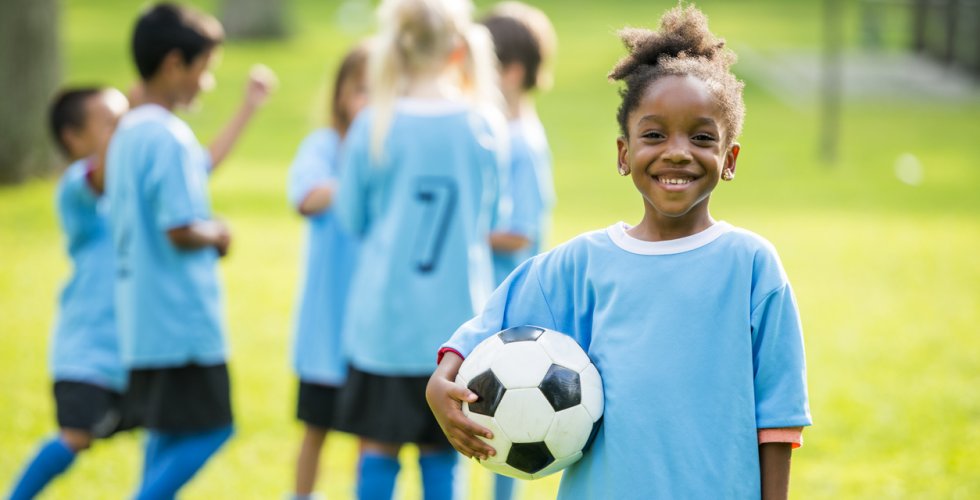
Policy recommendations
RFSL works for a policy for the inclusion of trans people in sports. RFSL already recommends that children up to 18 should be able to influence the terms for their own participation in sports.
Discrimination of people based on gender identity and/or gender expression is contrary to the basic principle of all people’s equal value and rights.
Such discrimination is specifically forbidden according to Swedish and international law.
A national recommendation gives common rules. This lessens the likelihood that trans people who do sports become subject to arbitrariness. The specialist organisations should adopt more detailed policies, with focus on the sport’s special character.
“If there’s something I would like it’s guidelines for the next trans person. You shouldn’t have to wait for many years to be able to play,” says basketball player Noel Filén Hammarström in DN 4/4 2019
Age and level of ambition
The Swedish Sports Confederation (RF) categorises sports according to age and level of ambition.
Children’s sports means sports for children up to the age of 12, youth sports means sports for teenagers and young adults between 13-25 and adult sports means sports for people over 25.
In youth sports and adult sports there are grassroots and professional sports. In professional sports, an improvement in performance and good results in competitions are guiding. In grassroots sports health, comfort and well-being set the norm.
When it comes to professional sports, where international regulations are influential, Sweden as a sports nation should choose to work for trans people’s rights and take on a progressive role in the work for change.
Read the Olympic Committee’s guidelines.
It’s also important to know about the World Anti-Doping Agency’s grounds for the assessment of testosterone treatment.
The recommendations should be developed and adjusted more specifically to each age group, every sport, grassroots, and professional sports. Above all, the recommendations should be adjusted continuously as the norms and policies change and new research is published.
The recommendations aren’t a vision, but a way of tackling the problems that we currently are facing. The recommendations should be evaluated and revised in collaboration with experts no later than five years after implementation.
You can’t completely separate the discussion of grassroots sports from professional sports since the transition often is a process rather than a sharp shift.
Before a specialist sports organisation adopts guidelines for trans people’s participation it’s recommended that there’s a thorough discussion about the importance of gender in the respective sport. Many may agree that gender lacks importance in grassroots sports and that the policy therefore shouldn’t place unnecessary importance on hormone levels and the use of hormones. All specialist sports organisations should consider and investigate the possibility of instating gender neutral categories where athletes can partake without stating their legal gender.
In the project Sports for all bodies RFSL works with the sports movement to come up with suggestions for policies for different ages and categories. The work is estimated to be finished 2020. However, there are already recommendations for children up to 12 years old.
Children up to 18 years old
Children’s and youth sports should follow the United Nations Convention on the Rights of the Child.
ALL sports for children should, according to guidelines, operate from a children’s rights perspective. That means that the operation should be based on the child’s own interest and needs where play, joy and the will to move are a priority. Sports should contain versatile exercises and encourage participation in multiple sports.
A child doing sports should have the right to partake according to their own wishes, regardless of what gender the child was assigned at birth.
All children up to 18 years old should themselves choose category, team or group without restrictions.

Suggestions for other policy items
- A statement that promotes the inclusion of athletes with trans experience.
- A statement that says that participation in sports as far as possible should be based on people’s gender identity, and not the gender assigned at birth.
- A promise to create a safe and welcoming environment for all athletes.
- A confirmation that personal information only will be collected if it is absolutely necessary.
- A contact person for athletes with trans experience, and a clear frame for other roles and areas of responsibility.
- Information and guidance around complaints which should:
- describe how an athlete can make a complaint about discrimination or harassment based on gender or gender identity
- describe how the association or federation will handle complaints
- be fair, effective and confidential with the possibility to make anonymous complaints
- be accessible to children and be child-oriented.
- Be aware that the ability to do sports can be affected by gender-affirming treatment.
- A statement that says that the association or federation encourages the use of the right pronoun (for example by asking the players what pronoun they have when they register and use these pronouns in spoken and written communication).
- A section for “commonly asked questions” that answers questions that might arise.
